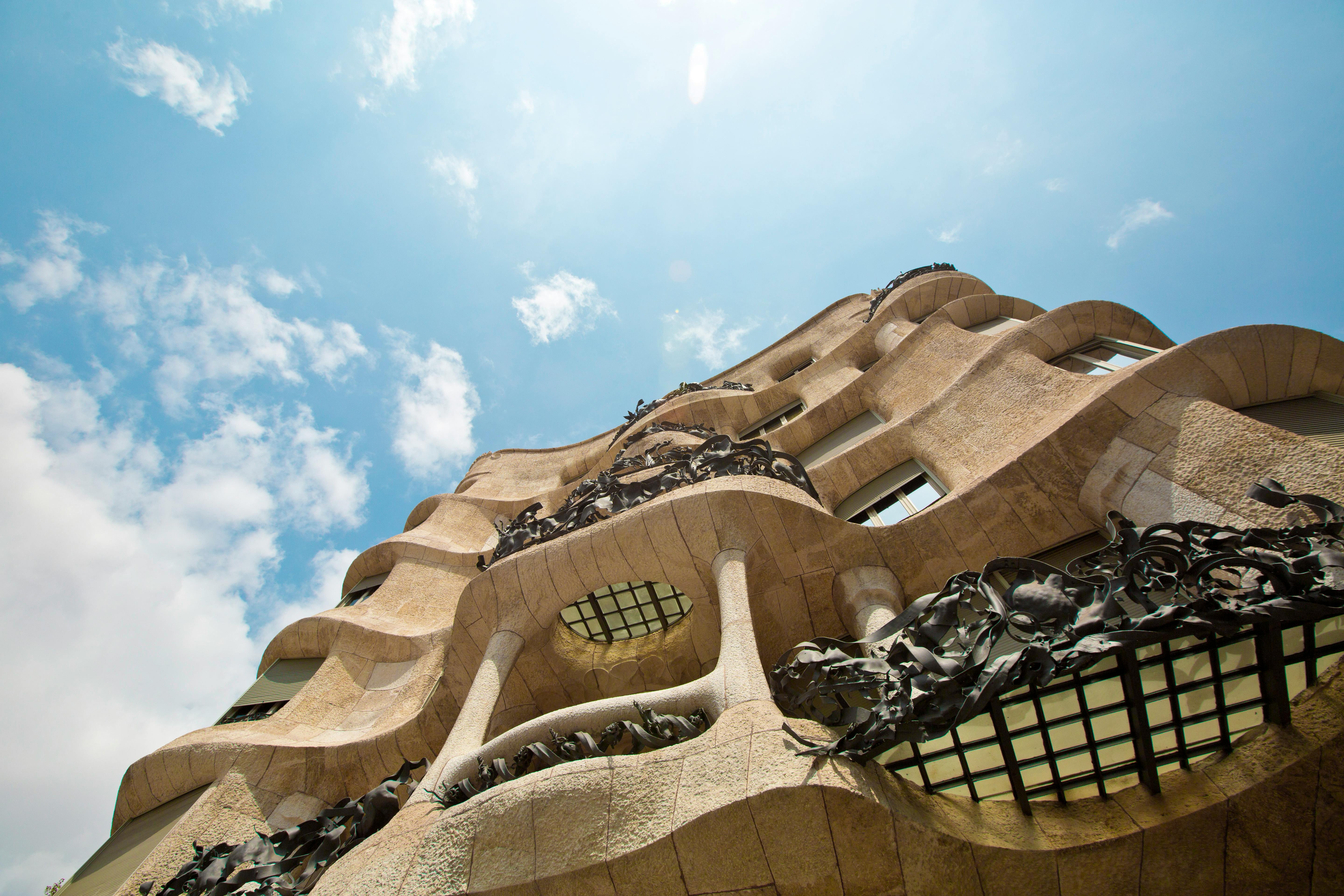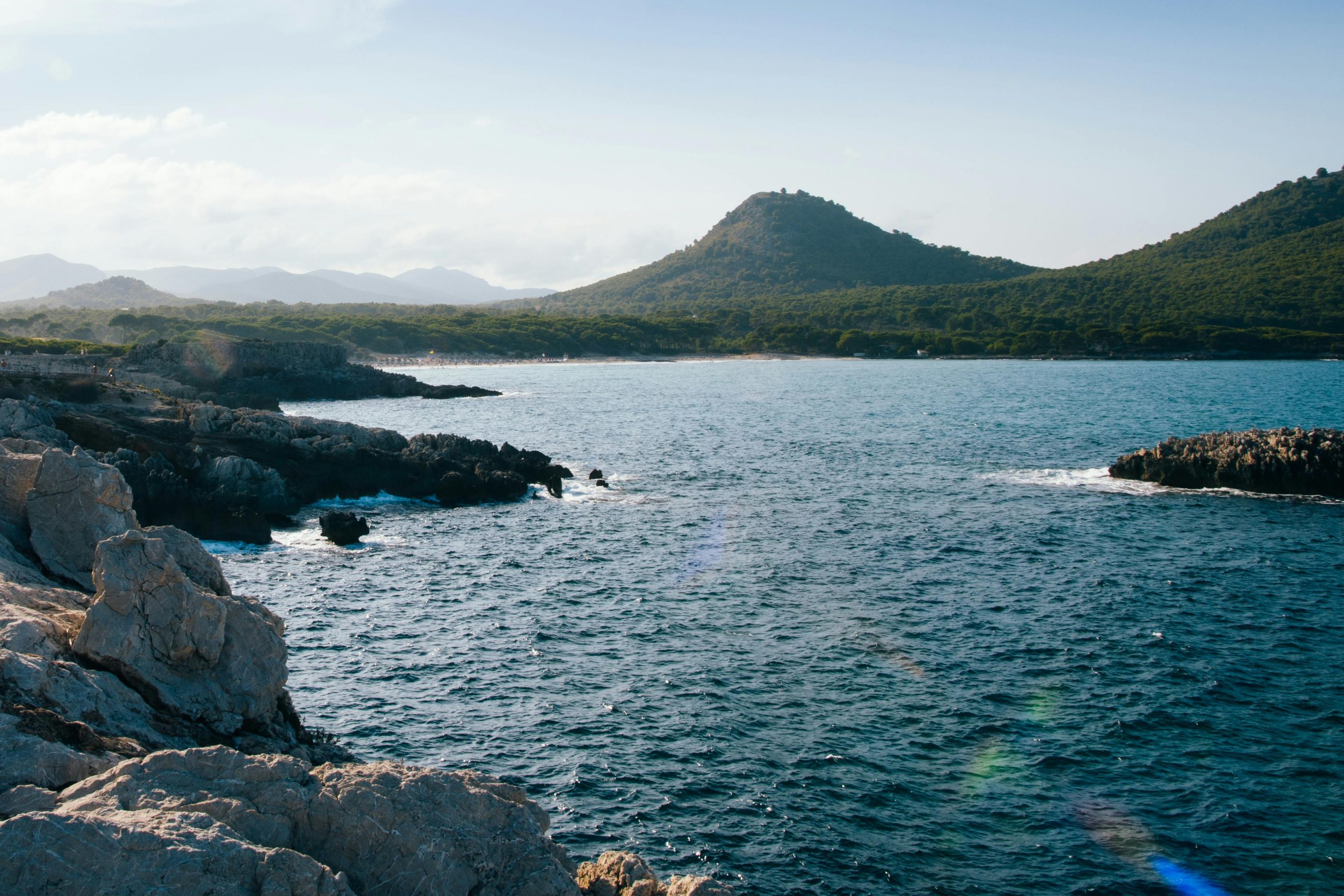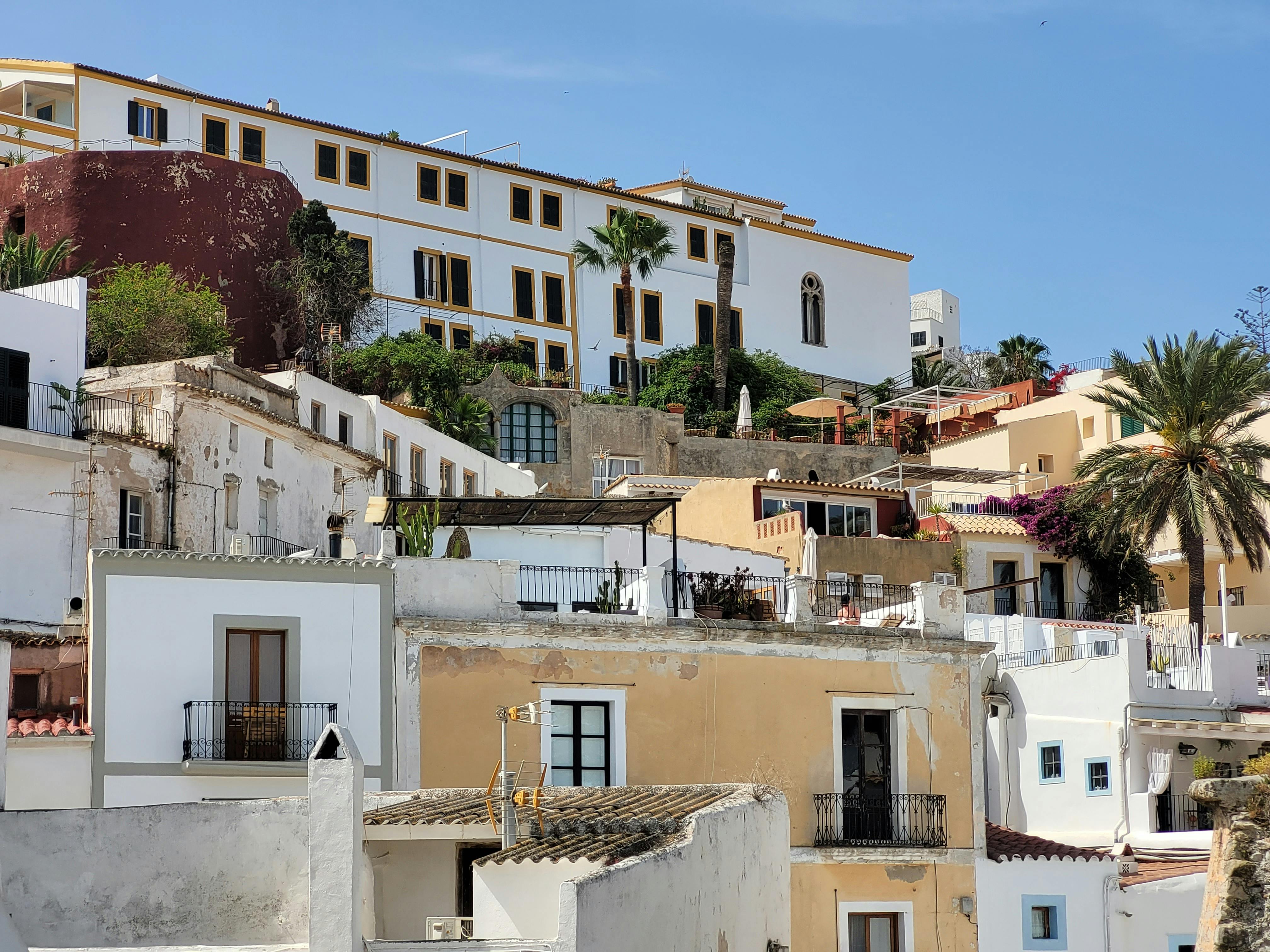Sustainable Marketing in Spain: Revolutionising the Tourism Industry Amidst Anti-Tourism Protests

Spain, with its rich history and stunning landscapes has established itself as one of the world’s top tourist destinations. However, the country now finds itself battling with the consequences of its own success. The recent protests across Barcelona, Majorca and the Canary Islands highlight the urgent need for a more sustainable and respectful approach to tourism. As Spain grapples with record-breaking tourist numbers and growing anti-tourism sentiment, sustainable marketing emerges as a powerful tool to transform the country’s tourism industry. This blog explores how sustainable marketing in Spain can propel the transition towards a more balanced and environmentally conscious tourism model, addressing the concerns of local communities whilst preserving the industry’s economic benefits.
Why is Spain Protesting Tourism?
Spain’s tourism industry has reached a critical juncture. In 2023, the country welcomed over 85 million international visitors, surpassing pre-pandemic levels and setting new records. While this has undoubtedly boosted the economy, it has also sparked widespread protests and growing resentment among local communities. In Barcelona, activists from the “Menys Turisme, Més Vida” (Less Tourism, More Life) movement have taken to the streets, demanding limits on flights and cruise ships. Their concerns echo across the country, with residents condemning mass-tourism’s impact on housing affordability, local culture, and quality of life.
As tourism numbers skyrocketed, the strain on local infrastructure and resources has become increasingly apparent. This influx has led to a sharp rise in housing costs, with many residents finding themselves priced out of their own neighbourhoods as properties are converted into tourist accommodations or bought by foreign investors. The situation in Majorca exemplifies these challenges. Sonia Ruiz, a 31-year-old mother, faces potential homelessness due to soaring rental costs driven by the tourism boom.
“Every day I’m looking and every day the rent is higher,”
she says, highlighting the cost of unchecked tourism growth.
The tourism-driven economy has also resulted in the transformation of local businesses, with traditional shops being replaced by tourist-oriented venues, further eroding the local lifesytle. As Pere Joan Femenia, a 25-year-old activist, points out,
“Businesses are changing from ones selling traditional products to multi-nationals selling ice cream and we are losing our identity.”
Moreover, the overcrowding, noise pollution, and strain on public services have diminished the overall quality of life for many residents. Not to mention, specialisation within the labour industry maintains the lowest wages in the tourism sector. All this fosters a growing resentment towards an industry that was once seen as the backbone of the country’s economic success.
Notably, climate activist group Extinction Rebellion has joined forces with anti-tourism protesters, underscoring the environmental implications of mass tourism. This alliance signals a growing awareness that environmental sustainability and social equity are inextricably linked in the context of tourism. These activists are pushing for a comprehensive re-evaluation of Spain’s tourism model, one that considers ecological and social impacts alongside economic gain.
The Environmental Toll of Mass Tourism
The environmental impacts of Spain’s booming tourism sector are far-reaching and increasingly visible:
- Air pollution: The dangerous levels of air pollution seen in popular tourist destinations like Barcelona contribute to poor human health, acidification of water and souls and damage to ecosystems, buildings and crops. The carbon footprint of international flights bringing millions of tourists each year is substantial. It’s estimated that a tourist arriving in Barcelona by aeroplane consumes an average of 605.7 kg of CO2, compared to just 52.9 kg for those arriving by train. With 82% of Barcelona’s tourists arriving by aeroplane, this stark difference stresses the need for more sustainable travel options and a shift in tourist behaviour.
- Waste generation: Waste production per capita increased by over 60% in recent years, a large proportion of which is single-use. Most of this is generated by tourists, putting considerable strain on local waste management systems. In addition, a 2019 report from the World Wildlife Fund named Barcelona as the second biggest culprit for emptying plastic into the Mediterranean.
- Noise pollution: In cities like Barcelona, noise levels rarely drop below 65 decibels, largely due to nightlife and increased traffic from tourism, lowering the quality of life for local residents.
- Pollution from cruise ships: In 2018, over 3 million tourists visited Barcelona on cruise ship tours. Barcelona’s port was named Europe’s most polluted in 2019, with cruise ships alone producing 32.8 tonnes of sulphur oxide – five times more than all the city’s cars combined. Cruise ships also account for 28.5% of Barcelona’s carcinogenic nitrogen oxide and 3.5% of the city’s particle pollution, posing major threats to marine life.
The Economic Dilemma: Balancing Tourism and Sustainability
While the environmental and social costs of mass tourism are evident, it’s important to note its economic importance. Tourism has long been a cornerstone of Spain’s economy, accounting for approximately 12.8% of Spain’s GDP and 17% of employment in 2023. A sudden reduction in tourism could have devastating economic consequences, particularly for regions heavily dependent on visitor spending. However, the current model of mass tourism is not sustainable in the long term. It not only degrades the very attractions that draw visitors in but also diminishes the quality of life for local residents. The solution is a sustainable tourism model that balances economic benefits with environmental protection and social well-being.
The Role of Sustainable Marketing in Transforming Tourism in Spain
As outlined in this post, sustainable marketing is powerful tool for shaping consumer behaviour and can be instrumental in driving the transition towards more sustainable tourism in Spain. Sustainable businesses can promote responsible travel, educate tourists about their impact, and showcase sustainable alternatives to reshape tourist expectations and behaviours. Here’s how sustainable marketing in Spain can catalyse this transition:
- Educating and Inspiring Travellers
Sustainable marketing campaigns can help raise awareness about the impacts of mass tourism and encourage more responsible travel choices. Promoting authentic local experiences and off-season travel helps distribute tourist flows more evenly throughout the year and across different regions.
For instance, a campaign might highlight the beauty of Andalusia in autumn, when the crowds have thinned but the weather is still pleasant. Or it could showcase the rich culture of lesser-known Spanish cities, encouraging visitors to explore beyond the usual hotspots. By promoting off-peak travel, sustainable marketing campaigns can help reduce overcrowding.
- Promoting Eco-Friendly Accommodations and Activities
Marketing should spotlight hotels, tour operators, and attractions that prioritise sustainability. This could include eco-certified accommodations, low-impact outdoor activities, and cultural experiences that directly benefit local communities. For example, highlighting Spain’s extensive network of hiking trails promotes active, low-impact tourism that allows visitors to immerse themselves in the country’s natural beauty. Similarly, showcasing traditional Spanish crafts and cuisine can encourage cultural exchange and support local artisans and producers.
- Collaborating with Local Communities
Sustainable marketing strategies should involve local residents to authentically represent local culture and values while addressing community concerns. This not only provides visitors with authentic insights but also gives locals a voice in how their city is presented to the world.

Joining Forces with Sustainable Marketing Agencies
Partnering with a sustainable marketing agency like Growfish.co is a great way for tourism brands in Spain to not only attract environmentally conscious travellers but also educate and inspire all visitors to choose sustainable alternatives. We’ve put together a list of sustainable marketing agencies that you can partner with as you transition towards sustainable tourism. As outlined in this post, sustainable marketing agencies can help sustainable tourism brands in Spain to:
- Develop authentic sustainability narratives: By crafting compelling stories about a business’s sustainability initiatives, marketers can connect with consumers and help sustainable brands stand out in a crowded market.
- Implement digital strategies with a low carbon footprint: Sustainable marketing agencies can help sustainable businesses optimise their online presence while minimising their digital footprint.
- Create educational content: Producing informative content about sustainable travel practices can help tourists make more responsible choices before and during their visits to Spain.
- Leverage social proof: By showcasing positive reviews and testimonials from eco-conscious travellers, sustainable marketing agencies can encourage visitors to choose sustainable alternatives. Influencer marketing is also a great way to showcase sustainable travel alternatives.
Propelling a Circular Economy in Spain through Sustainable Marketing
Sustainable marketing can also play a key role in promoting circular economy principles within Spain’s tourism sector. For instance by highlighting hotels that have implemented water recycling systems or restaurants that source ingredients from local, organic farms. This can help create demand for sustainable services and encourage other businesses to adopt similar measures. If you want to find out more about circular economies and other sustainability principles, take a look at our glossary of key sustainability terms.
A Sustainable Future for Spanish Tourism
The protests we see today in Barcelona, Mallorca, and other Spanish hotspots are not just a cry of frustration but a call to action. As Spain wrestles with the mass tourism’s challenges, sustainable marketing emerges as a powerful tool for change. By reshaping tourist behaviour and promoting sustainable alternatives, sustainable marketing can catalyse the transition towards sustainable tourism, preserving Spain’s natural beauty and cultural heritage.
For sustainable tourism businesses looking to navigate this transition and contribute to a more sustainable future for Spain’s tourism industry, consider partnering with a sustainable marketing agency. Growfish.co, specialises in developing tailored sustainable marketing strategies that align with your business goals because marketing shouldn’t cost the earth.
Sources:
- Environmental Impacts Of Tourism In Barcelona: Can Circular Economy Make The City Sustainable?: https://earth5r.org/barcelona-spain-circular-economy/#:~:text=Dangerous%20Levels%20of%20Pollution,density%20and%20narrow%2C%20congested%20streets.
- Tourism consolidated its recovery in Spain in 2023: https://www.investinspain.org/content/icex-invest/en/noticias-main/2024/exceltur.html
- The Spanish fightback against record tourism: https://www.bbc.co.uk/news/articles/c99wxwgzn8qo
- Spain’s anti-tourism protesters team up with Extinction Rebellion and Free Palestine activists to cause CHAOS this summer: https://www.gbnews.com/news/world/spain-tourism-protests-extinction-rebellion-free-palestine
For more information on how a sustainable digital marketing agency can help your sustainable business grow, get in touch with a member of our team at growfish.co.
Related Posts
Sustainability in Ibiza: Building a Resilient Local Economy
Like many popular holiday destinations in Spain, the “party island” Ibiza, is suffering from the environmental and social consequences of mass tourism. However, a growing number of local initiates and businesses are laying the foundation for a more environmentally...
Sustainable Glossary: Key Sustainability Terms
At the heart of sustainable marketing are concepts and practices that help businesses balance profit with purpose. A specialised vocabulary has emerged to describe complex ecological concepts and initiatives. In this blog, we have put together a useful glossary of...
Sustainable Marketing in Bali: Transforming the Tourism Industry
With its stunning landscapes and rich cultural traditions, Bali has long been a top tourist destination, attracting millions of visitors each year. However, the exponential growth of mass tourism in Bali raises concerns about environmental degradation, cultural...





